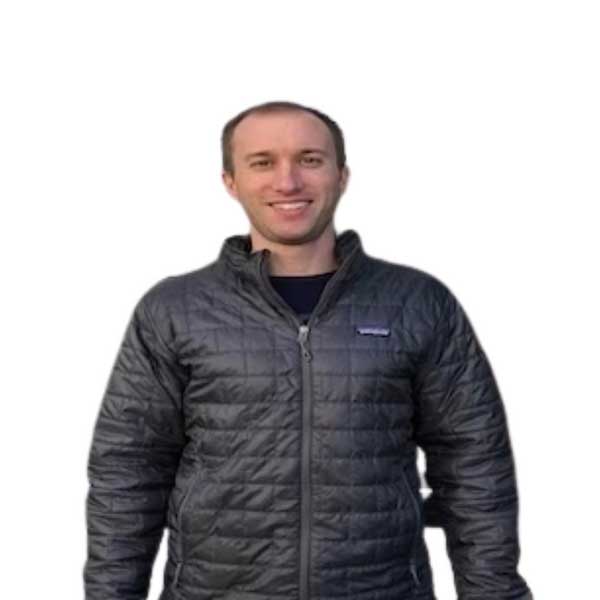By Rich Danker
“He breathes the same air I breathe so I’m going to treat him like a person.”
That’s how Kwame Brown first spoke about Michael Jordan as the legend sat beside him. What other player would have the guts to say that after being handpicked as a high schooler by the greatest of all time?
Twenty years after the 2001 NBA draft and two weeks since spontaneously acquiring a massive audience, Kwame is still unfazed by his more famous peers.
Recently, He’s crusaded on YouTube against the “Go Along Get Along Gang,” a response to the corporatization of celebrities in the paid influencer era. Kwame is offended by fellow basketball players who have sold out to Hollywood. The same ones who lowered themselves to stunts like mocking his own long professional career.
Now, the teenager who refused to kiss MJ’s rings is a 39-year-old with the deadly combination of hard-won wisdom and independent status. He’s one-by-one pulverizing sports, media, and even academic personalities uniformed enough to get in his way. In the larger picture, he’s waging war on how authority is misallocated within our culture.
Kwame is a country guy South Carolina living in Georgia among blue-collar people. Even after $64 million in NBA earnings, they can’t understand a celebrity who farms his own land. Kwame used his fortune to go back home. What could be more of a rejection of celebrity culture than that?
The Go Along Get Along Gang is a hustle available to practically anyone with a modicum of fame. It’s simple; dance according to the sponsored message and enjoy exposure and protection. First, Kwame started on the former players who betrayed him, but soon he broadened it to the wider culture. He understands how the pattern traces through spheres like media, politics, and tech.
Also, Brown understands that the Internet itself has constructs like followers that cultivate blind loyalty. Instead of empowering never-ending niches, the Internet fosters consolidation.
For example, challenger websites sell to big companies. Retired athletes with outsize Instagram profiles queue up to work for ESPN and Showtime. A yearlong Twitter focus on racial economic disparity culminates in NBA players investing with Harvard. There are few cases of successful autonomy like Kwame.
Corporate America, particularly Hollywood, dangles the lure of audiences to prospects of the Go Along Get Along Gang. Exposure is the commodity in the post-MJ era, where stars, especially athletes, have been taught to become a “brand.”
It’s supposed to increase opportunities and chances to get lucky. But, a precondition is that one can never have enough of it.
The shortcut to modern stardom is signing on to an established platform – even though that always compromises content. It ingratiates the star with fellow stars. Additionally, it protects them from having to take a stand or decide what they would do with real authority. Also, it offers on-call reputation defense from critics.
Furthermore, corporate bosses are more serviceable to the celebrity than a publicist, a manager, or an agent. Celebrities in turn provide corporations with cover. This is how influencer culture is brokered.
Kwame Brown speaks often about his joy in no longer having a boss. When he did have one, it was why he kept quiet all those years. Wisely, he followed his mother’s advice to respect the terms of his employment with the NBA.
Now, he’s taking on people like their bosses, from Charlamagne tha God to Dr. Fauci. There’s a large segment of the country that live in a different world from his that are suckers for authority figures. Corporate America is eager to mint more of them.
The world in which Kwame grew up was one inhabited with authority figures he actually knew. Figures like his father or the string of mentors his mother brought into his life. The irony of his tumultuous association with Michael Jordan is they both came from similar places; southern coastal communities that didn’t change much between their upbringings.
Places where traditional values like patriotism and family reigned. Wearing clothes with the American flag on it, like Kwame does in his videos, was second nature rather than a political statement. The importance of fathers wasn’t a political position either. Michael Jordan expounded upon it two months before his sixth and final championship.
I think about the fact that Grant [Hill], Kobe [Bryant] and I had strong fathers. I know people are concerned about the behavior of some young players, but it starts at home. I’ve always said that. I wish some of the other guys in the league could have had fathers at home, just to see what it’s like, just to see how much better people they could be. Some of the background for the decisions, the evaluations, the choices you have to make, come from when you were at home growing up. Two-parent homes aren’t as prevalent anymore.
Single-parent, either way, you’re missing the opposite influence of the missing parent. I had both parents. It helped my decision-making immensely. Especially now that I am a father, making choices like a father, talking to my kids. Like my father did with me.
You can find similar content today on the Kwame Brown Bust Life YouTube channel. It’s not as polished, but it’s more expansive, forceful, and courageous. Kwame has a rare ability to speak off the cuff and maintain undivided attention. The sustained interest in his content shows there’s a demand for touting tradition values in novel ways. Curtis Scoon and Jason Whitlock have ruminated on this too with their own podcast, Politickin’.
Like other retired players, Kwame Brown could’ve dined out for the rest of his life on playing with the likes of Jordan and Kobe. Conventional wisdom would have told him to seek approval within the celebrity hierarchy that he became acquainted with as a teen.
Instead, he took the opposite path, a U-turn back home. Because of that, he has little use for the corporate world and celebrity culture. Now, he’s busy exposing false gods and crediting what really made him a success.
We could have learned something twenty years ago from the way a 19-year-old from Brunswick, Georgia treated Michael Jordan.
Subscribe to get early access to podcasts, events, and more!






